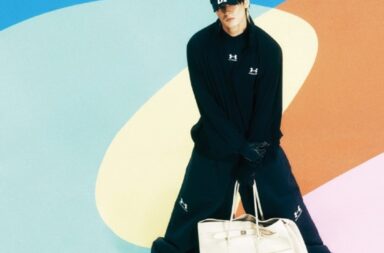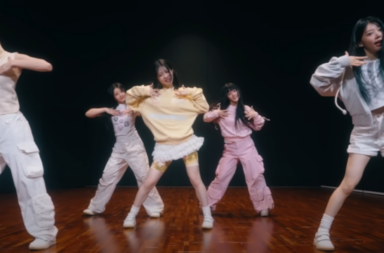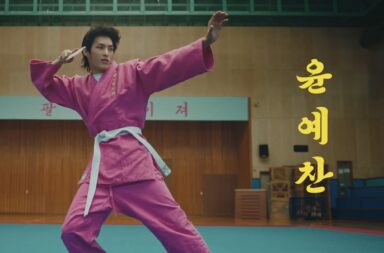Note: This review contains spoilers from the show, which ended its run last week as of the date of publishing.
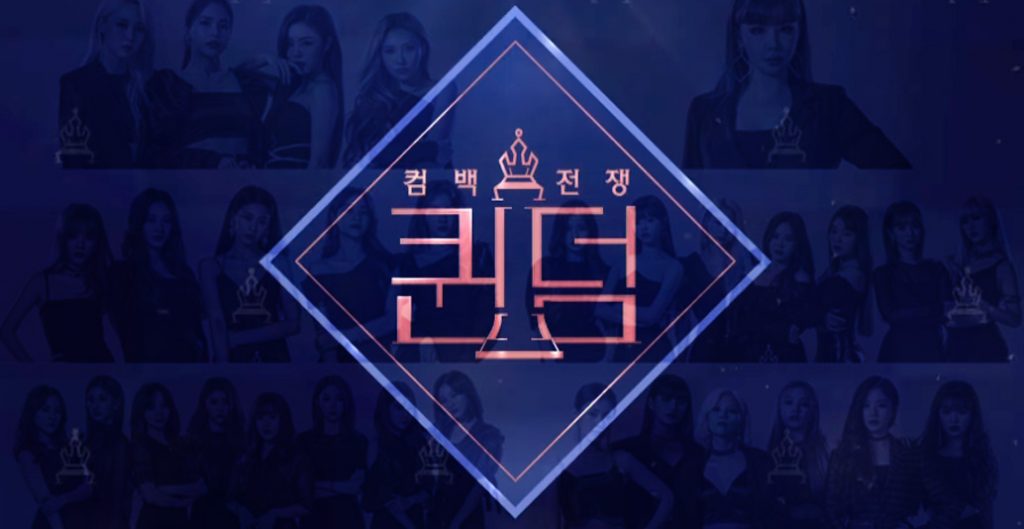
Following the unexpected success of last year’s Queendom, which gave a boost of popularity to its already popular contestants Park Bom, AOA, Mamamoo, Oh My Girl, Lovelyz and (G)I-dle, it comes as no surprise that Mnet teased plans to introduce the male equivalent of the show Kingdom. What surprised K-pop fans was when they instead announced Road to Kingdom (RTK), a prequel of sorts to the main show. The lineup would give underrated boy groups who have not yet won (or have only won one) first place at music shows an opportunity to showcase themselves, with the winner earning the show to compete on Kingdom against far more popular groups.
Then came the competition lineup — Pentagon, ONF, Golden Child, The Boyz, Oneus, VeriVery, and TOO — which should have already been a clear foreshadowing of the poor execution and inconsistencies of the series. Many pointed out that The Boyz and Golden Child are already considerably more successful, having already snagged music show wins, and while Pentagon have not yet officially won on a music show, the success of their viral hit “Shine” alone makes it hard to classify them as underrated. At the point of the announcement, TOO had yet to even debut. It isn’t too far to assume that their participation has something to do with their status as the debut team from Mnet’s own survival series To be World Klass, but TOO’s inclusion into the lineup still felt awkward.
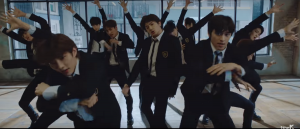
The rules and structure of the show were illogical at best. The rankings prior to the finals were predominantly based off self-voting by the participants themselves, who seem to be overly fixated on performance sequence (is it that hard for them to remember and compare a performance that happened half an hour ago versus one that just ended?) and their personal biases. Even as the groups showcase wildly different types of performances, the rankings were mostly unaffected, and it became very obvious early on that The Boyz’ approach and style to their stages had earned the favour of the other contestants. Even the introduction of a small group of fan opinions in later episodes skewed the rankings greatly. One then wonders how much the rankings could have changed had the voting system be slightly altered or if more specific rubrics had been given. But this system of voting definitely had its merits as it prevented RTK from becoming a popularity contest.
Since the start, Mnet teased the possibility of two groups entering Kingdom, but it was realistically not possible when the final episode took a 180-degree turn from previous episodes and favoured groups with a bigger fandom. It was thus nearly comedic to see Mnet try to create suspense as they announced who the winner was between ONF and The Boyz, when even the much lesser-known ONF seemed resigned to the fact that the odds weren’t in their favour.
Regardless of eventual rank, every group on RTK went through a journey of growth in the show. This list summarises the results for the show, as well as their best performance on the show.
7th: Golden Child
Before their contentiously premature exit from the show as the first eliminated team, Golden Child graced the show with an alternative style and approach to their stages. The casual viewer with no knowledge of the RTK groups would have dismissed them during the 90-second introduction performance as yet another boy group in all black with powerful, in-your-face dancing. Be it a deliberate artistic direction or pure coincidence, both their subsequent stages then revealed another side to Golden Child beyond what casual listeners and viewers might know of them.
With the use of classical elements, their beautiful and elegant stages stood out from the predominantly darker stages from competing teams. While their final stage “Wannabe” offered a dynamic blend of modern dance, a live orchestra, and even a stunning violin solo by main vocalist Joochan, it was the cohesiveness and simplicity of their cover of “T.O.P.” from Shinhwa that will leave the strongest impact on non-fans. Golden Child left viewers in awe at the beauty of the picture they painted even with minimal visual aids, as they moved seamlessly between group and individual segments including a contemporary dance solo by rapper Tag.
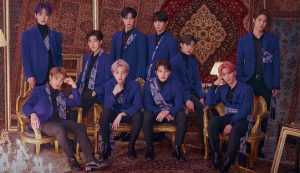
Not to mention, Golden Child’s presence was definitely missed, with their friendly personalities, jokes, and reactions making the otherwise unnecessarily tense show a more lighthearted one. Building upon their momentum from the show, Golden Child promptly dropped a comeback announcement and has since released a new album, showing the group’s eagerness for growth even nearly three years into their debut.
6th: TOO
Technicalities of their participation aside TOO did a commendable job at competing against much more experienced and polished groups. Throughout the competition, it was acknowledged that TOO performed with fierceness and confidence beyond their years. What seemed to hold TOO back was then the fact that they have yet to create a distinct group identity for themselves and have not had enough time to hone their artistry as a group. Before their eventual elimination, TOO best showcased their performance abilities fighting spirit in the first round. A redemption stage of sorts after placing last at the introductions, their sleek and showstopping rendition of TVXQ‘s “Rising Sun” clinched them an impressive 4th amid the stiff competition. Showcasing fun dance breaks, creative formations, and soaring vocal runs from Jaeyun and Donggeon, it was a satisfying performance that never faltered in its energy and surprises.
Not to mention, it also gave viewers a peak comedy experience that was the obviously scripted backstory behind their song choice. Did anyone even believe that TOO really went up to the rooftop just as the sun was rising and it reminded them of their journey as rising rookies?
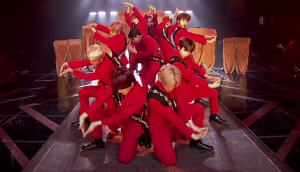
Perhaps TOO were not yet fully ready to showcase themselves for a stage on the scale of RTK, but the experience and exposure they have gained from the show will surely be an unforgettable one for TOO, and it will definitely be exciting to see what these rookies have in store in the future.
5th: VeriVery
Even as they foray into darker territory both on in their own title tracks and a few of their RTK stages, VeriVery, who debuted in early 2019, are aware that their strength lies very much in fun, bright concepts coupled with their synchronised dancing. Still, VeriVery did not quite hit the mark with their other bright stages on RTK — with their ambitious covers of Seventeen‘s “Mansae” and Mamamoo’s “Gogobebe” that lacked cohesiveness. It was then during the series finale performance of their new original song “Beautiful-X” that VeriVery peaked and hit a sweet spot. Perhaps it was the lack of eliminations to worry about, or the determination to end their RTK journey on a high, but VeriVery performed their hearts out and the result was a stage that will undoubtedly leave a smile on your face. It was also heartening to see how much they enjoyed this stage and was proud of it, especially since the competition pressure evidently took away some of the enjoyment of performing for VeriVery.
With a musical format against the classic backdrop of the high school, it was cheesy and predictable down to the use of props. Yet, it was also the perfect palate-cleanser of high energy fun amid all the other powerful, impact-driven stages. Its only weak point is the song itself, which feels more like a fan favourite b-side than a title track at a competition finale, but VeriVery definitely made up for it with a performance that proves the timeless appeal of bright concepts.
4th: Oneus
Earning a reputation for being the ultimate survivors of the show, VeriVery’s debut-day-friends Oneus barely scraped past elimination every round. With their performances taking bits of inspiration from the success formulas of other groups on the show before putting their own spin to it, what then seemed to hold Oneus back was the pressure to impress rather than showcase. This is a pity especially since Oneus’ strong understanding of their unique sound far exceeds many of the other K-pop boy groups that debuted in the past year. Their Romeo and Juliet inspired rendition of Infinite‘s “Be Mine” is more likely to be representative of their usual stripped-down style, but their standout RTK stage was also ironically the one that didn’t hold back on the sheer number of props, sets, and elaborate costumes. Most of the time, less is more, but Oneus hit jackpot with their ‘more is more’ approach to their song “Lit”.
Colourful and self-aware, Oneus are sure to charm fans with this explosive festival-like spectacle. By still focusing on their strengths, which is the individuality of their members, Oneus managed to retain their identity even as they experiment with the RTK stage. Bonus points for including a random zombie dance break in between, which is a wordplay on the popular Korean series with the same title Kingdom.
3rd: Pentagon
If there is one thing that Pentagon has over the other groups on the show, it is the spirit that only older groups that have gone through countless ups and downs will possess. This shone most prominently in their emotionally charged goodbye stage for main vocalist Jinho, who had to enlist in the middle of filming the series. The stage started off with the pure innocence of “Shine” and ended with the nostalgic longing of “Spring Snow”, leaving even non-fans in tears.
As Pentagon entered the show as the most experienced and thus feared group, it seemed to be Pentagon’s own harsh expectations on themselves that left them crippled. While other groups yoyo-ed between concepts, Pentagon kept their dark, slightly insane persona throughout the show (excluding the goodbye stage) because it was what seemed to work rank-wise at the start. The constant aggression and intensity of their stages evidently started to lose its initial impact with voters. Fortunately, Pentagon seemed to finally find themselves again at the end with the anthemic “Basquiat”. Pentagon still stuck to a dark theme with motifs of war, but unlike their previous stages, this stage held an uplifting and strong message of the group’s hope and greatness. The song’s lyrics are also incredibly fitting for the show.
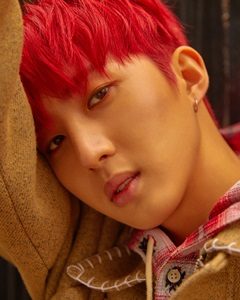
If The Boyz won the show for the best performances, then Pentagon’s leader Hui definitely deserves a separate individual award for being RTK‘s MVP. It’s without a doubt that he has poured his heart into the show. In addition to being a main vocalist (an excellent one at that) and lead dancer, he is also the producer for all their RTK tracks including the collaboration stage with ONF. He also led the special vocal collaboration stage at the finals. Though not everyone will be a fan of his song rearrangements, Hui definitely deserves the credit he gets for being hardworking and an all-rounder idol.
2nd: ONF
Runner-ups ONF started the show as an unassuming presence and a 5th place at the introductions, even as the second oldest team on the show. The epitome of a dark horse, ONF gradually climbed up the ranks every round as self-proclaimed ‘Stair-dols’ with their epic stages. Building on the momentum of their shocking twist on Shinee’s “Everybody” and the stunningly poignant rearrangement of their songs “We Must Love” and “Moscow Moscow”, featuring Oh My Girl’s Yooa, it was their rearrangement of Rain‘s “It’s Raining” that eventually got them to the overall 1st place in the last episode before the finale. Tasked with what was without a doubt the hardest song of the round, ONF not only stepped up to the challenge of breathing fresh air into an iconic classic. Incorporating hooks from Michael Jackson‘s “Billie Jean” and ONF’s title track “Complete“, this stage sums up the balanced and polished executions that make ONF’s stages so enjoyable. The cameos by their producer, choreographer and manager in this performance were also a nice nod of appreciation to the teams behind these stages.
What ONF managed to excel in compared to all other groups on the show lies in their loyalty to their group’s identity. Even as they take on different personas and moods in every round (devils, puppets, humanoids etc.), their performances always feel cohesive with one another as they focused on placing an ONF stamp on it — from retaining their regular choreography style to incorporating elements of their well-respected discography into their rearrangements, all while still highlighting their distinct vocal colours. It can be difficult to create visually impactful stages without the use of much visual aids, but ONF chose to keep their focus on singing and dancing, things that the group does very well in.
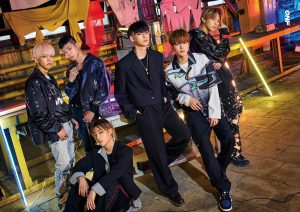
In a sense, ONF is somewhat like the heart of RTK, representing what the show intended to do, which is to give groups that clearly don’t lack the talent, a chance to showcase it on a bigger stage. ONF’s hilarious reactions and banter during the show have also gained them much attention, and it seems safe to say that RTK would have been a lot less enjoyable without their presence on the show. While they didn’t manage to join The Boyz in Kingdom, they have definitely left their mark.
1st: The Boyz
The Boyz were frontrunners for winning the show since the first episode, even if other groups came close at some point. Their cover of Shinee Taemin‘s “Danger” in the first round was a gamechanger for RTK, and pioneered several trends that appeared in subsequent rounds. From the extensive use of various parts of the stage, the innovative use of props, and stunts, it is no wonder that this stage received praise from Taemin himself. While their creative director can be credited for their outstanding use of the stage and the consistently most effective presentation of visual aids, the stages would not have been brought to life without The Boyz, who are probably the most balanced dance unit on the show. Anyone with a background in performing arts would tell you that while it is difficult to get to a skill level where you can impress even with few visual aids like ONF, it is also difficult to perform well with many props. For that, The Boyz undoubtedly deserves credit too.
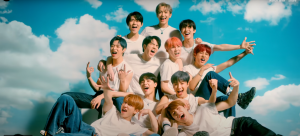
As the rounds progress, The Boyz’ eventual triumphant lies in how they managed to kept things fresh while relying on similar gimmicks, even keeping to a storyline through the series. Though their victory at the finale was objectively due to the size of their preexisting fanbase more than anything else, The Boyz stages also have widespread appeal with its creativity, aesthetics, and great performance value. Even before the introduction of the popularity element at the finals, The Boyz have clinched countless deserving votes. After all, they are worthy winners, and are likely to be formidable competitors even in Kingdom, which airs in August.
As per Mnet’s reputation to make things unnecessarily dramatic for the clicks, it was clear from the first episode that RTK would be the cruel, more brutal brother of Queendom. Two rounds of eliminations would happen before the final five moves on to the finals, which singlehandedly destroys the show’s original intention of providing groups a platform to showcase themselves. While the subsequent tension, tears, and stress of the groups that follow might tug the heartstrings of fans, it also made the show a much more unpleasant and draining watch for non-fans who should be the show’s target audience, with groups trying to rake in new fans.
Additionally, this took a toll on the creativity of the stages and variety viewers got to see. Groups were sent into survival mode, as they struggled to find what could visually impress the most and leave the longest-lasting impression as opposed to how to best execute a stage. This meant heavily performance-oriented stages, fancy stunts, and powerful concepts. At many times, it felt overdone and repetitive, and it was because of this that bright stages ending up standing out more.
However, despite the show’s haphazard writing, it’s clear that countless hours of practice and coordination went into making the stages happen with groups pulling all stops with the use of sets and props, even more so than on Queendom. With the lack of a live audience due to the ongoing pandemic meaning, the scale and size of the stage became much bigger, with camerawork creating opportunities for groups to create many fun visual illusions in their performances. The standards of the stages shown in the series will definitely exceed the expectations of non-fans, and it is the stages that ultimately keep the show exciting.
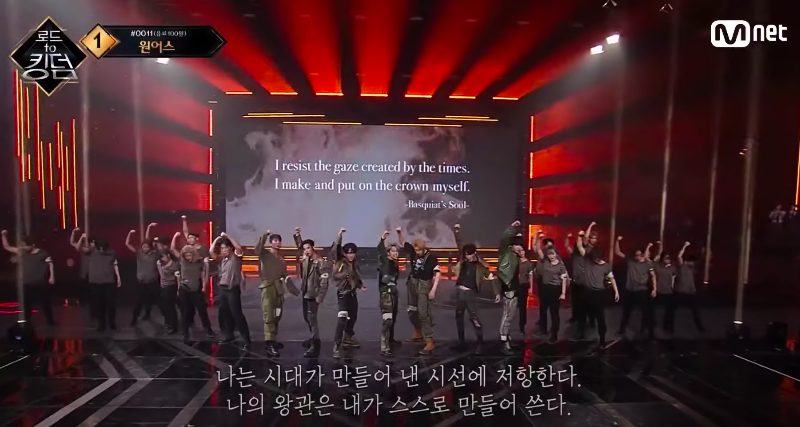
At its best, RTK stages are definitely worthy of becoming the textbook for future stages on the Queendom and Kingdom series or covers of K-pop songs in general. Of course, the new friendships and appreciation the groups have for one another is also an important reminder that each group is running their own race, and there is a space in the industry for multiple groups with an array of styles and sounds to thrive simultaneously. As with the ending quote in “Basquiat”, the groups on RTK have much to be proud of and have proven to be deserving of their own crown.
(Youtube, Images via Mnet, Creker Entertainment, Woolim Entertainment, Stone Music Entertainment, Cube Entertainment, WM Entertainment)
